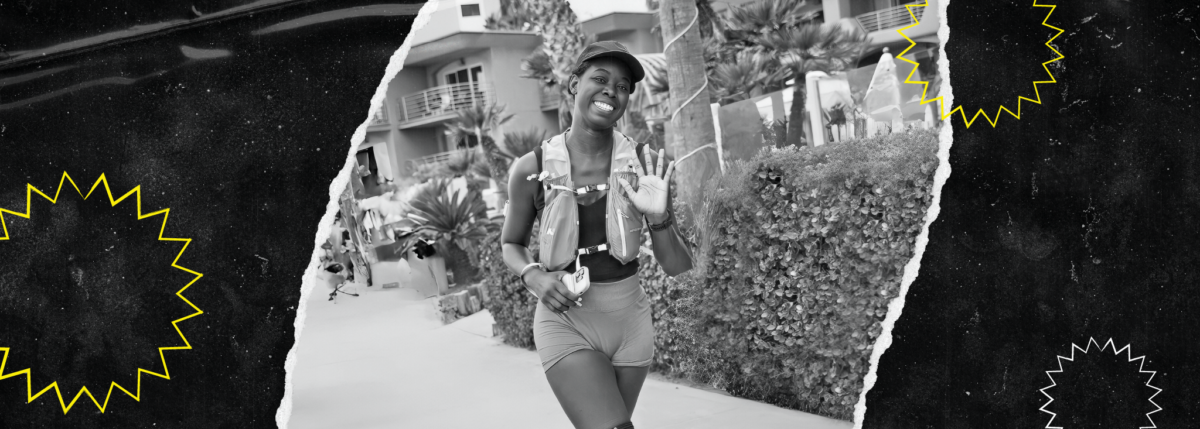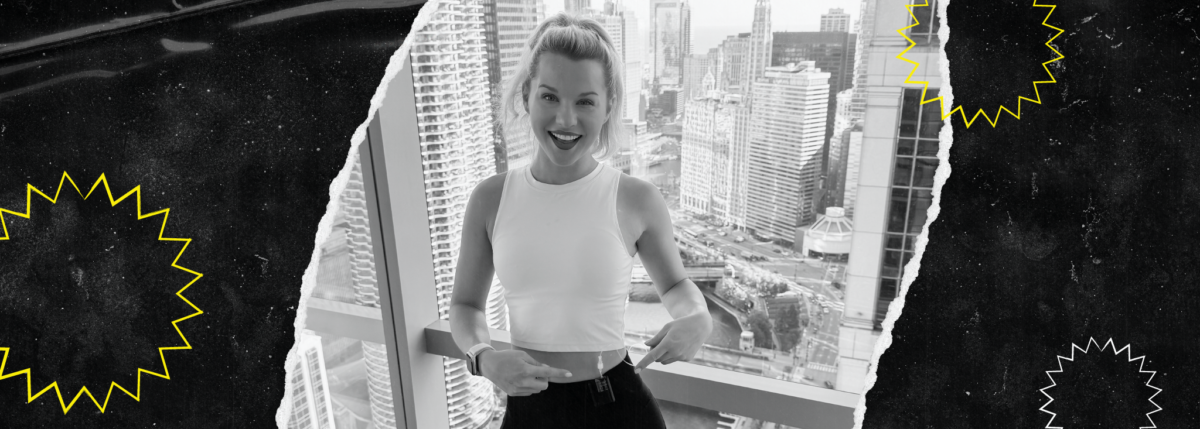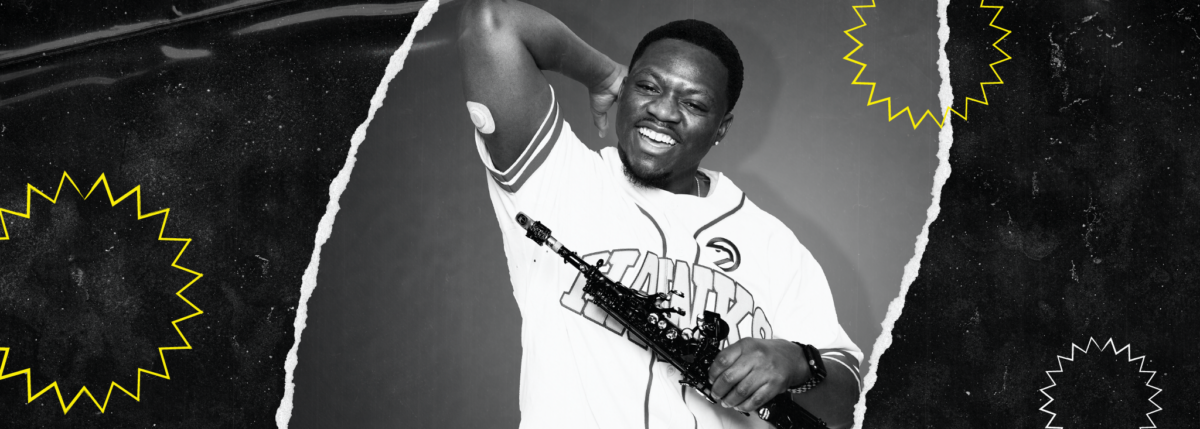Taking the Blame and Shame Out of Complications
Written by: Renza Scibilia and Chris Aldred aka "The Grumpy Pumper"
4 minute read
October 4, 2019
Most people living with diabetes will remember conversations they’ve had with healthcare professionals about diabetes-related complications, and often, those memories aren’t especially positive.
For many, it was as early as diagnosis that the scary, ugly complications monster first appeared under the guise of ‘Do what you are told, or all the nasty things will happen’. For others, it wasn’t until further down the line. And for some, their diabetes diagnosis coincided with the diagnosis of a diabetes-related complication.
Regardless of when, it’s important that complications are not spoken about in a blaming and shaming way.
Renza and Grumps on complications
For the last couple of years, diabetes advocates Chris “The Grumpy Pumper” Aldred (UK) and Renza Scibilia (Australia) have been suggesting it’s time to find a new way to talk about complications.
Chris (better known to all as Grumps) was diagnosed with a foot ulcer two years ago and used that diagnosis to start an online campaign encouraging people with diabetes to open up about their own diabetes-related complications story. Using the hashtag #TalkAboutComplications, more and more people shared their experiences of living with different complications. For some it was the first time that they felt comfortable talking about the issue and sharing their own stories. The online discussions quickly grew, bringing together a collection of tales from people around the globe, and providing a digital safe space for peer support and encouragement.
Renza works at Diabetes Australia and was involved in the development of their language position statement which started the #LanguageMatters in diabetes movement over eight years ago. She was interested in the link between how the words used when discussing complications impact how people feel emotionally, as well as exploring how to make people feel more comfortable speaking about what is often seen as a taboo topic. She knew that reframing the way we talk about complications is critical if we want to stem the stigma and blame that seem to go hand in hand with them.
Together, they have travelled around the world, speaking at conferences and events, been guests on a number of podcasts, and written for several digital and print publications about their work in this area.
As people continued to share their diabetes-related complications stories, it was very apparent that there was a sense of blame and shame that added to the burden of dealing with the actual complication. This shame came from a number of avenues. Often it was healthcare professionals who suggested that it was the fault of the person with diabetes. Others spoke about feeling that shame from family members who commented that it was because they “hadn’t looked after themselves properly.” Perhaps most hurtful were comments from other person with diabetes (PWD) who chastised others from our own “tribe,” demanding they start some aggressive management plan (most often, LCHF was suggested) which they promised would have resulted in no complications. Blame from others walking the same path seemed just cruel.
Comments such as these only add to the anxiety, stress and fear that frequently go alongside diabetes-related complications. We are conditioned to feel that fear, and we are also conditioned to believe that all complications are entirely preventable.
Part of the #TalkAboutComplications discussion has been to encourage people to think about their care as a way of risk reduction, rather than use the term prevention. Too often, we have seen communications suggest that complications are preventable, if only people diligently follow the directions of their healthcare provider (HCP) team and run an A1c under 7%. And yet, we heard time and time again of people who really and truly had done that, and yet were still diagnosed with complications.
True story
In another example of diabetes refusing to play fair, there are no guarantees, and even being the “perfect PWD” is no surety that complications would stay away. (While the DCCT did certainly show a reduction in rates of complications when PWD are able to attain an HbA1c below 7%, there is no absolute fail-safe way to stop all complications.)
But, imagine how different we would feel if instead of finger-pointing, discussions about complications were done in a safe, human and gentle way. Instead of discussing them as an end point, with no light beyond that, the conversations were about the possibility of them, risk reduction and no blame at all. Rather than admonishment, there would be a feeling of support if it happens. That would be a far better way to start—and continue—conversations about a topic that, for many, has been nothing but fraught with fear and anxiety.
Living with diabetes is hard. It’s really hard! It takes motivation to keep going. Add to this a diabetes-related complication diagnosis and it just doubles down. Treatment can be hard, and the outcome may not be what we want. Even when the outcome is what we want, it doesn’t necessarily end there—for many, there will still need to be consideration of this complication for the rest of our lives.
Diabetes and its related complications are not just physical; they are emotional too. There is a psychological impact of both to all PWD. Even those that do not have a complication, there is a fear of developing them. The Diabetes MILES study showed that the greatest problem area across all diabetes types was worrying about the future and the possibility of developing serious complications (1).
And that’s just one of the reasons that it’s important to get the language around diabetes-related complications right! Adding to the burden with words that blame and shame can demotivate. And we all know that lack of motivation will never improve physical or psychological outcomes.
The language around diabetes-related complications has to change. #LanguageMatters and we need to continue to #TalkAboutComplications in a way that encourages discussion and supports people to find the help they need.
Check out another piece by Renza—Language Matters.
1. Speight J, Browne JL, Holmes-Truscott E, Hendrieckx C, Pouwer F, on behalf of the Diabetes MILES—Australia reference group (2011). Diabetes MILES—Australia 2011 Survey Report. Diabetes Australia—Vic, Melbourne.

Author
Renza Scibilia and Chris Aldred aka "The Grumpy Pumper"
Renza Scibilia lives in inner-Melbourne, Australia and has had type 1 since 1998. For the last eighteen years, she's used an insulin pump. Most of the time, her robot parts also include a continuous glucose monitor (CGM). She works for a diabetes organization and created the blog Diabetogenic. <br> <br> Chris has been living with type 1 diabetes for 25 years. He is a diabetes advocate and blogger using social media to engage with diabetes online community on important topics like #talkcomplications and #SpareARose.
Related Resources

Danica Collins not only prepared for one of the most challenging physical events of her...
Read more

Beyond Type 1 is spotlighting inspiring athletes with type 1 diabetes as they prepare for...
Read more

On November 3, 2024, Taylor Rindfleisch of Chicago laced up her running shoes for the...
Read more

